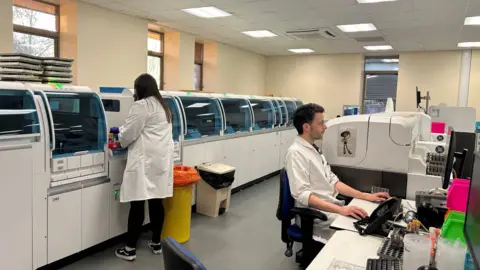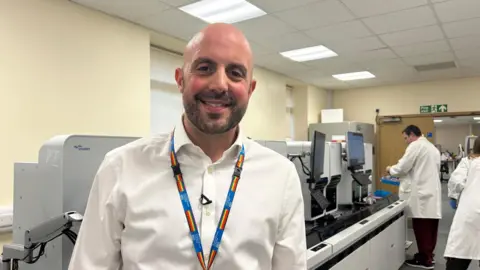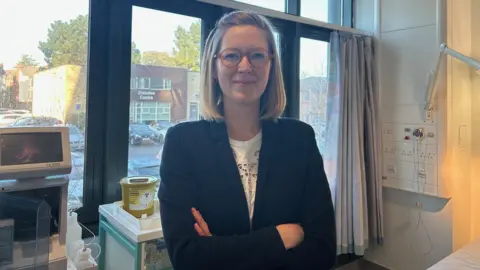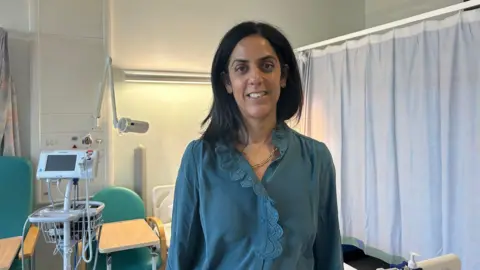How an algorithm could help spot cancer sooner
 BBC
BBCA new way of interpreting standard blood tests could help GPs spot cancer warning signs sooner, according to scientists.
The Royal Devon University Healthcare NHS Foundation Trust said it was the first in the country to apply an algorithm to routine blood analysis alongside the University of Exeter.
The algorithm adds in factors such as a patient's age and sex when analysing whether a raised blood platelet level could indicate cancer.
An alert is then sent to GP practices with additional advice on what steps to take next.

After reviewing data from more than six million adults over the age of 40 in Canada, England and Australia, scientists found the natural variation in platelet count could be used to diagnose cancer sooner.
If the algorithm is rolled out across the NHS nationally, the team believe it could identify 10,000 patients a year who have a raised blood platelet count before a cancer diagnosis.
Prof Tim McDonald, clinical director for pathology at the Blood Sciences Laboratories at the trust, said "one of the big aims of the NHS is to diagnose cancers earlier".
"At the moment, we diagnose just over 50% of cancers at what we consider an early stage," he said.
"There's an aim by 2028 to make that 75% and this is the type of research which will allow us to do that."

Initially, the algorithm will be piloted on blood tests from five GP practices in Devon.
Prof Sarah Bailey, associate professor of primary care diagnostics at the University of Exeter, who led the study, said: "General practitioners know that a raised platelet count can be an early sign of cancer.
"This study will give them more information about when this should be taken as a warning sign, and how to act on it.
"In our research, we found if you applied a personalised upper limit, depending on the age and sex of the patient, you could get better estimate of cancer risk."

The most likely cancers to be picked up by a raised platelet count were lung cancer and bowel cancer, she added.
Exeter-based GP Dr Nada Khan said she expected the work to make a difference.
"Earlier diagnosis means that we are able to treat patients quicker and reduce workload issues further down the line," she said.
The research team said they would be evaluating the clinical and economic benefits of the algorithm over next two years.
They hope it will then be rolled out across the NHS nationwide.
Follow BBC Cornwall on X, Facebook and Instagram. Follow BBC Devon on X, Facebook and Instagram. Send your story ideas to spotlight@bbc.co.uk.